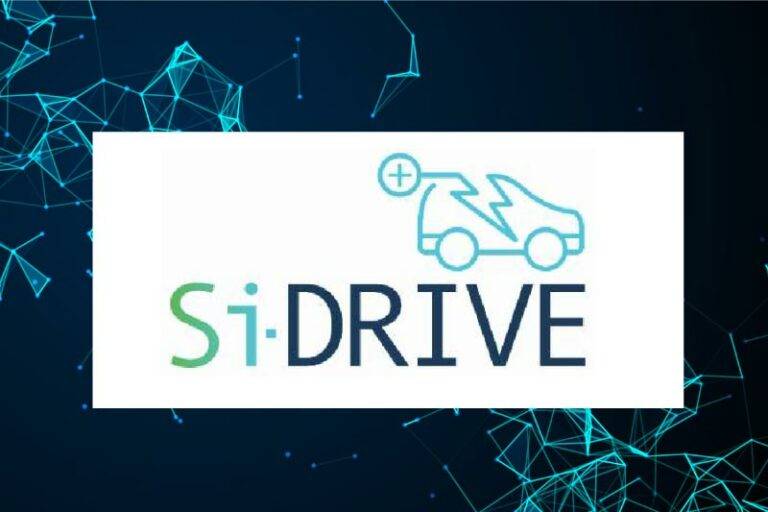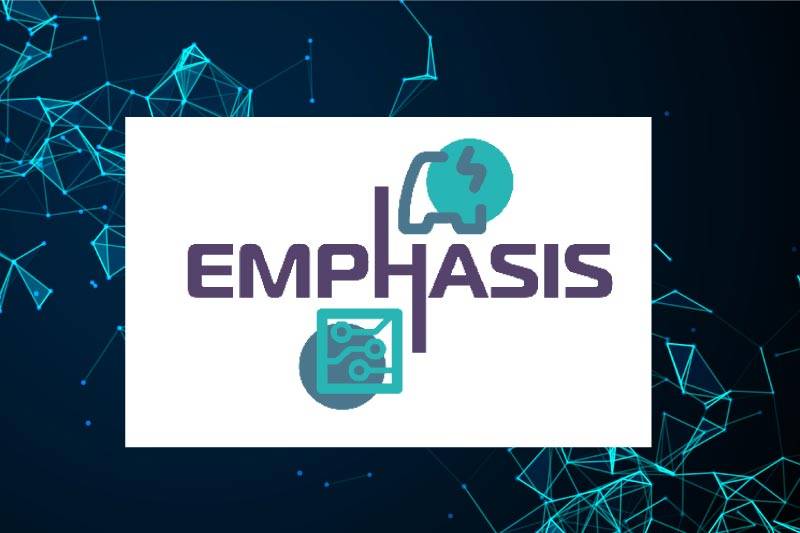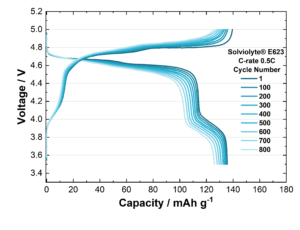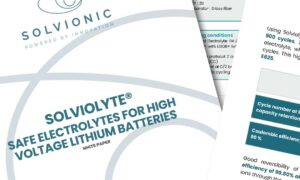Silicon alloying anodes for high energy density batteries comprising lithium rich cathodes and safe ionic liquid-based electrolytes for enhanced high voltage performance.
Si-DRIVE is focusing on developing the next generation of Li-ion batteries based on an ionic liquid-based solid electrolyte, a silicon anode and a cobalt-free cathode.
Si-DRIVE will develop the next generation of rechargeable Li-ion batteries, enabling mass-market electric vehicles at a competitive cost thanks to processed materials and cell chemistry innovations, offering enhanced safety with superior energy density, life and fast charge capability, using sustainable and recyclable components. The technology encompasses amorphous silicon coated with a conductive copper silicide network as the anode with polymer/ionic liquid electrolytes and lithium-rich (cobalt-free) high-voltage cathodes via evolutionary processes, which can be manufactured in Europe. The components have been taken to TRL3 (Technology Readiness Level) through a preliminary lab-scale analysis, with a strategy of component improvement to achieve a prototype demonstration (TRL5) by the end of Si-DRIVE.
In-depth theoretical and experimental studies will probe and control the interfacial processes that have so far limited Li-ion technologies to marginal gains, looking at materials design and eliminating capacity-weakening mechanisms.
Si-DRIVE technology will exceed the stringent requirements of electric vehicle batteries, where safety is paramount, by dramatically improving each component of the Li-ion platform in a competitive, market-driven process over the entire life of the battery. The technology will also need to prove its suitability for reduced energy density second life applications beyond the main life of electric vehicles, prior to cost-effective recycling of materials in line with the circular economy.
The Si-DRIVE consortium has the expertise required from both academic and industrial partners to implement this technology. It will cover materials design and synthesis, electrochemical testing, prototyping and validation of production methods, life cycle assessment and development of recycling processes.
Publications
- Maresca, G.; Sankaran A.; Santa Maria LJ.; Ottaviani M.; Fantini S.; Ryan KM.; Brutti S.; Appetecchi GB. Superior compatibility of silicon nanowire anodes in ionic liquid electrolytes. Energy Mater. 2024, 4, 400017.
- M. Falco & al. An electrochemical compatibility investigation of RTIL-based electrolytes with Si-based anodes for advanced Li-ion batteries, Materials Today Sustainability, Volume 21, 2023, 100299, ISSN 2589-2347.
- O.Palumbo & al. So Similar, yet so Different: The Case of the Ionic Liquids N-Trimethyl-N (2-methoxyethyl)ammonium Bis (trifluoromethanesulfonyl)imide and N,N-Diethyl-N-methyl-N(2-methoxyethyl)ammonium bis(trifluoromethanesulfonyl)imide – Frontiers in Physics, 10 – 2022
- S. Brutti & al. – Ionic liquid electrolytes for high-voltage, lithium-ion batteries – Journal of Power Sources – Elsevier, 15 December 2020
- A. Cimini & al. Decomposition temperatures and vapour pressures of selected ionic liquids for electrochemical applications. J Therm Anal Calorim 142, 1791–1797 (2020).
- O. Palumbo & al. – Synthesis, Physical Properties and Electrochemical Applications of Two Ionic Liquids Containing the Asymmetric (Fluoromethylsulfonyl)(Trifluoromethylsulfonyl)imide Anion. Appl. Sci. 2022, 12, 4524.
- M. Falco & al. – A bilayer polymer electrolyte encompassing pyrrolidinium-based RTIL for binder-free silicon few-layer graphene nanocomposite anodes for Li-ion battery – Electrochemistry Communications, Vol 118, 2020, 106807, ISSN 1388-2481






